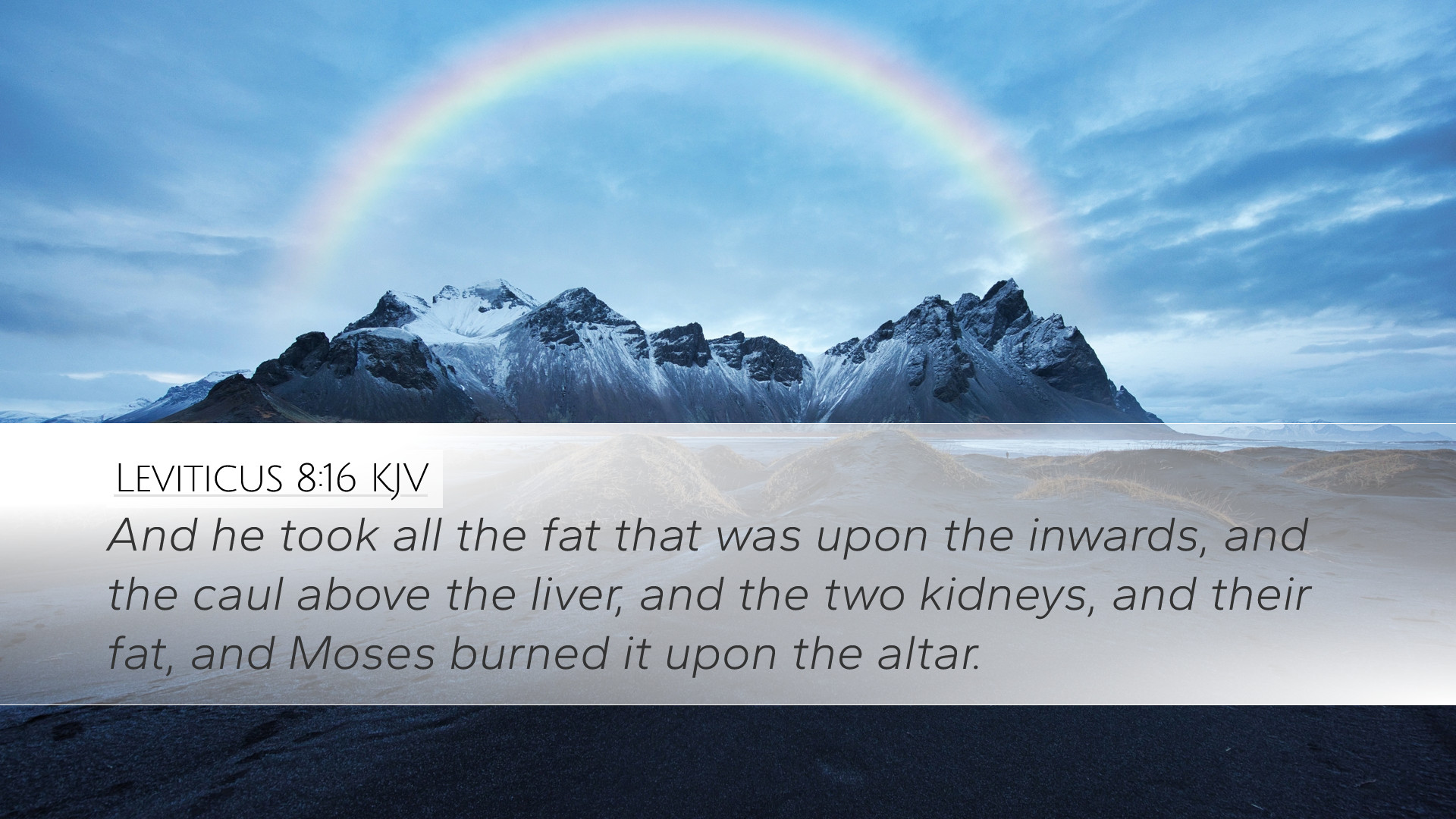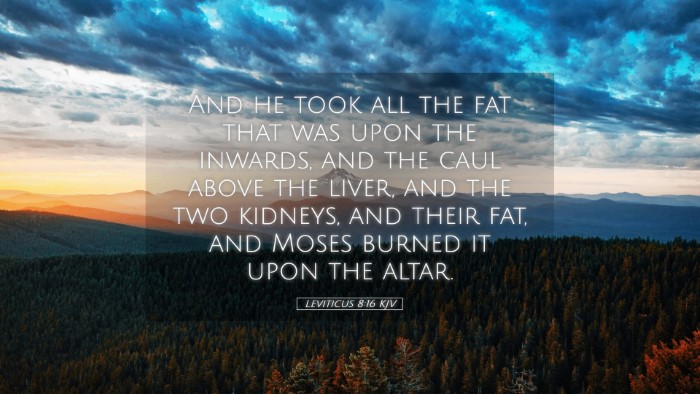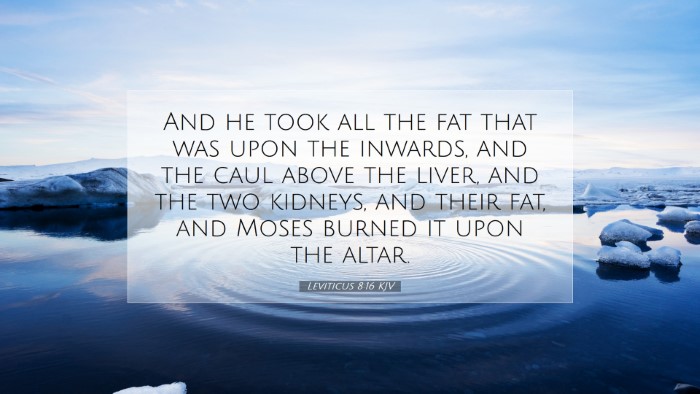Commentary on Leviticus 8:16
Leviticus 8:16 states: "And he took all the fat that was upon the inwards, and the caul above the liver, and the two kidneys, and their fat, and Moses burned it upon the altar." This verse presents a detailed description of the ceremonial actions performed during the consecration of Aaron and his sons as priests.
Context and Significance
The book of Leviticus focuses on the laws related to worship, purity, and the roles of priests. This particular chapter describes the ordination of the Aaronic priesthood, highlighting the sacredness of their office and the precise nature of the rituals performed. Such details serve to instruct not only the priests but also the entire community regarding their relationship with God.
Insights from Commentators
Various public domain commentators provide valuable insights into the significance of Leviticus 8:16:
-
Matthew Henry:
Henry emphasizes that the ritualistic details instructed by God through Moses symbolize the seriousness of holiness required in approaching God. The fat represents the best portion of the sacrifice, indicating that offering the fat is a way of giving God the best of what we have. He interprets the action of burning the fat on the altar as a symbol of complete dedication and the sweet aroma that pleases God.
-
Albert Barnes:
Barnes discusses the significance of the various specific sacrificial parts mentioned. The fat above the inward parts represents not just the material substance but also the spiritual offering of one’s inner self to God. Barnes notes that the act of burning serves a dual purpose: it is a pleasing offering to God and a means of atonement for sin, showcasing God’s holiness and the necessity of sacrifice in maintaining fellowship.
-
Adam Clarke:
Clarke highlights the meticulous nature of the sacrificial process and expresses that this precision reflects God’s holiness and the order He demands in His worship. He suggests that the specific mention of the fat and viscera signifies a purifying aspect, cleansing both the offerer and the community from impurities. Clarke also points out the typological interpretation of sacrifices, foreshadowing the ultimate sacrifice of Christ.
Theological Implications
The ritual described in Leviticus 8:16 extends beyond the immediate context of the Aaronic priesthood. The fat being offered and burned signifies the offering of the best to God, an enduring principle applicable to Christian worship today. It challenges believers to dedicate their best resources—time, talent, and treasures—to God’s service.
Application for Today
For pastors and theologians, this passage is an invitation to reflect on the nature of worship and service. As the Church today navigates within the context of grace and truth, the principles within Leviticus remind us of the ongoing call to holiness. Like Aaron and his sons, believers today are called a "royal priesthood" (1 Peter 2:9) and therefore must approach worship with reverence and intention.
Conclusion
In examining Leviticus 8:16, contemporary readers encounter a rich tapestry of law, grace, and worship that invites discussion on sacrifice, consecration, and the nature of our offering to God. As Henry, Barnes, and Clarke collectively assert, the act of burning the fat upon the altar encapsulates the essence of giving our best to God—an eternal reminder of the sweetness of true devotion and worship in the life of every believer.


